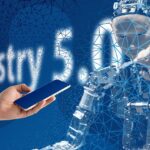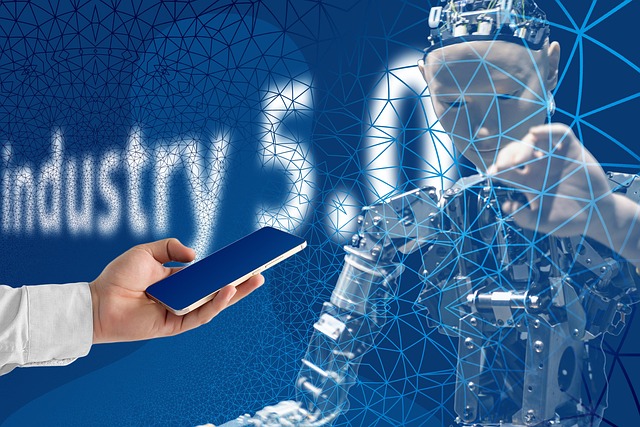# AI and the Future of Work: How Technology is Reshaping Careers and Skills for Tomorrow’s Jobs
The rapid advancement of artificial intelligence (AI) is fundamentally transforming the landscape of work. As organizations increasingly integrate AI into their operations, the nature of jobs and the skills required to perform them are undergoing significant changes. This article delves into how AI is reshaping careers, the skills that will be in demand, and the implications for the workforce of tomorrow.
## The Evolution of Work in the Age of AI
Historically, technological advancements have always influenced the job market. The Industrial Revolution, for instance, shifted labor from agrarian societies to factories, creating new opportunities while rendering some jobs obsolete. Today, AI represents a similar paradigm shift, albeit on a much larger scale. It is not just automating routine tasks but also augmenting human capabilities in complex decision-making processes.
AI technologies, such as machine learning, natural language processing, and robotics, are being employed across various sectors, from healthcare to finance and manufacturing. In healthcare, AI algorithms can analyze medical images with remarkable accuracy, assisting radiologists in diagnosing diseases more efficiently. Meanwhile, in finance, AI-driven analytics help in risk assessment and fraud detection, enabling quicker and more informed decision-making. This evolution indicates that the future of work will not merely involve the replacement of jobs but rather a transformation of roles where human and machine collaboration becomes the norm.
The implications of this transformation are profound. As AI systems become more capable, the demand for roles that require human judgment, creativity, and emotional intelligence will increase. Consequently, jobs that involve routine, repetitive tasks are at a higher risk of being automated. This shift underscores the need for workers to adapt and acquire new skills to remain relevant in an AI-driven job market.
## Skills for Tomorrow: Emphasizing Adaptability and Lifelong Learning
An essential aspect of thriving in the future workforce is the recognition that adaptability will be a key skill. As AI continues to evolve and reshape industries, the ability to learn new technologies and methodologies quickly will be paramount. Workers must cultivate a mindset that embraces change and fosters continuous learning.
Technical skills will undoubtedly remain important, particularly in fields such as data analysis, programming, and AI system management. However, soft skills are gaining prominence as well. Skills such as critical thinking, problem-solving, and emotional intelligence are becoming increasingly valuable as they complement the capabilities of AI. For instance, while AI can process vast amounts of data, it lacks the human touch necessary for understanding context and making nuanced decisions. Therefore, professionals who can leverage AI tools while applying their human insights will be in high demand.
Moreover, interdisciplinary knowledge is becoming a competitive advantage. The convergence of technology with various fields—such as healthcare, education, and environmental science—demands a workforce that can navigate and integrate diverse domains. As such, professionals equipped with a blend of technical and domain-specific knowledge will be better positioned to capitalize on emerging opportunities.
## The Role of Organizations in Shaping the Workforce
Organizations play a crucial role in preparing their workforce for the future. Proactive companies are investing in training and development programs that focus on upskilling and reskilling their employees. By fostering a culture of continuous learning, organizations can ensure that their workforce remains agile and capable of adapting to technological advancements.
Implementing mentorship programs and collaborative projects can also facilitate knowledge sharing and skill development among employees. Encouraging cross-functional teams allows workers to gain insights from different perspectives and enhances their ability to work effectively in an AI-enhanced environment. Additionally, organizations are increasingly recognizing the importance of diversity and inclusion in the workforce, as diverse teams are often more innovative and better equipped to tackle complex challenges.
Furthermore, companies must also consider the ethical implications of AI in the workplace. As automation becomes more prevalent, the potential for job displacement raises important questions about the responsibility of organizations to their employees. Initiatives such as job transition support and career counseling can help ease the transition for workers affected by automation. By taking a holistic approach to workforce development, organizations can not only enhance their productivity but also contribute positively to society.
## Conclusion: Embracing the Future with Confidence
The future of work, shaped by AI and technological advancements, presents both challenges and opportunities. While certain jobs may become obsolete, new roles will emerge that require a different set of skills. Embracing adaptability and lifelong learning will be essential for individuals looking to thrive in this evolving landscape.
Organizations must take an active role in preparing their workforce for the changes ahead. By investing in training, fostering a culture of continuous learning, and addressing the ethical implications of AI, companies can create an environment where employees feel empowered to grow and adapt.
Ultimately, the integration of AI into the workplace is not merely a threat but a catalyst for innovation and progress. By embracing this transformation with confidence, both individuals and organizations can navigate the complexities of the future of work, ensuring that they remain relevant and competitive in an ever-changing job market. As we move forward, the collaboration between humans and AI will define the careers of tomorrow, shaping a workforce that is not only skilled but also resilient and adaptable.











